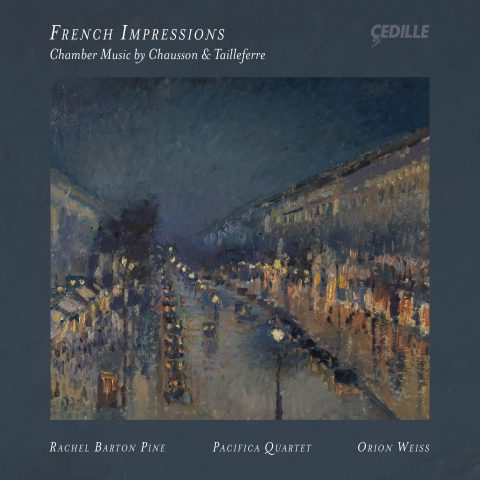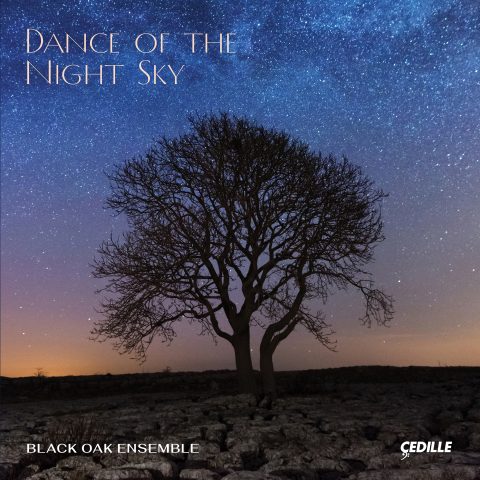
Discover
Take 5: Patrice Michaels

This edition of Take 5 features acclaimed soprano and composer Patrice Michaels! Her upcoming album with pianist Kuang-Hao Huang, Notorious RBG in Song, is a salute to the life and work of legal pioneer and Supreme Court Justice Ruth Bader Ginsburg. Showcasing both her vocal and composition talents, the album contains the world-premiere recording of Michaels’s THE LONG VIEW: A Portrait of Ruth Bader Ginsburg in Nine Songs along with songs by composers Stacy Garrop, Vivian Fung, Lori Laitman, and an aria from the comic opera Scalia/Ginsburg by Derrick Wang. Notorious RBG in Song is currently available for pre-order; all CDs and downloads ship June 8!
If you weren’t a musician, what would you be?
Music is the central tenet of my daily life — my practice in the way that people talk about religion, my language for maximum communication. I’m privileged to have the education and opportunity to perform, create, study and teach music. In another set of life circumstances, my impulse to make music might be something I could only express while washing floors or sewing clothes or typing someone else’s ideas for a living… There is certainly an uncountable number of music-makers much more skilled than I, who have never been recognized for their art or have only been heard by those in their inner circle. I might be one of them, in another set of circumstances. All that said, my fantasy career, at least today, would be a dancing acrobatic pediatrician.
What is your most recent project and what sparked your interest in it?
I was asked to write one simple song as a birthday present for Justice Ruth Bader Ginsburg, who is my very own beloved mother-in-law. The text I was given opened the door to the idea that I could create a musical portrait of her, so, with her permission, I began the wonderful odyssey that wound from her papers in the Library of Congress, through interviews with her family and friends, and culminated in an assemblage of nine texts set to music in my own jazz-meets-classical style. Along the way, I learned songs and an aria about RBG by other composers, and a whole lot more about my husband’s family. The recorded outcome of this journey, Notorious RBG in Song, integrates my composing and singing musicianship completely. On so many levels this is a deeply personal CD.
Was there a formative moment for you as an artist?
I wish my mom and dad could help answer this question! Some of my earliest memories are of both of them whistling very melodiously (never simultaneously, though). Mr. Johnson, the 5th grade travelling music teacher and later my middle school band director, gave me a hint when he told me I’d clapped back the rhythms better than anybody he’d ever tested. My parents drove me all over creation so I could serve as music director for community theaters in our region when I was too young for a license. When I joined a mail-order record club in high school, Mahler, Debussy, Stravinsky and Mozart began sharing equal time in my ears with the two jazz radio stations I loved. My brother Ed gave me a dulcimer and a stereo system (I still play that dulcimer!). When I decided to move from Southern California to the Twin Cities for grad school, my mentor Vern Sutton surely changed my life by assigning me to write a one-act opera my first year (I chose my own libretto based on Euripides’ The Trojan Women) and casting me as Susanna in Le Nozze di Figaro the next year. So many formative moments!
What are you listening to right now?
Clarice Assad! Abiding love for jazz, Brazilian music, new music, virtuosity and simplicity all meet in that one person — Home is a favorite CD. I adore Bela Fleck and the Flecktones (especially Victor Wooten, the bass player) for similar reasons, inserting bluegrass and funk in place of Brazilian — Live Art is a compilation CD that I’d have a hard time not hearing again. Speaking of “live,” I’m going to Hyde Park in a couple of hours to hear one of my favorite musicians, drummer Brian Blade with his Fellowship Band. Two nights from now I’ll get to hear Mahler’s 9th Symphony with the CSO.
What makes the Chicago classical music scene unique?
I’m not sure I’m qualified to answer that, since I don’t dive deeply into other cities’ music scenes on a regular basis. I love Chicago for the warm and attentive audiences who turn out for live music and continue buying music. The colleagues I’ve worked with over the years are beyond spectacular — incredibly skilled and so generous of spirit. Cedille Records is one thing I know for sure that is unique about the Chicago music scene — nowhere else is there a label devoted to capturing and disseminating the music of artists and groups from one region. That’s extraordinary!
Recommended
Acclaimed concert violinist Rachel Barton Pine, sought-after pianist Orion Weiss, and the multiple Grammy Award-winning Pacifica Quartet join forces for their new album French Impressions: Chamber Music by Chausson & Tailleferre, celebrating captivating works by French composers Ernest Chausson and Germaine Tailleferre.
Dance of the Night Sky, Black Oak Ensemble‘s third album for Cedille, expands the boundaries of string trio repertoire by offering listeners a vibrant collection of contemporary works including four world-premiere recordings, all by British women composers.
We celebrate the 7/11 release of French Impressions, including Ernst Chausson’s Concert Op 21 for Violin, Piano & String Quartet (Rachel Barton Pine, Orion Weiss, Pacifica Quartet) with a set of pieces written or performed as sextets from throughout the Cedille catalog (tracks from French Impressions added 7/11).
Enjoy 25% off Cedille’s Weekly Featured Release.



